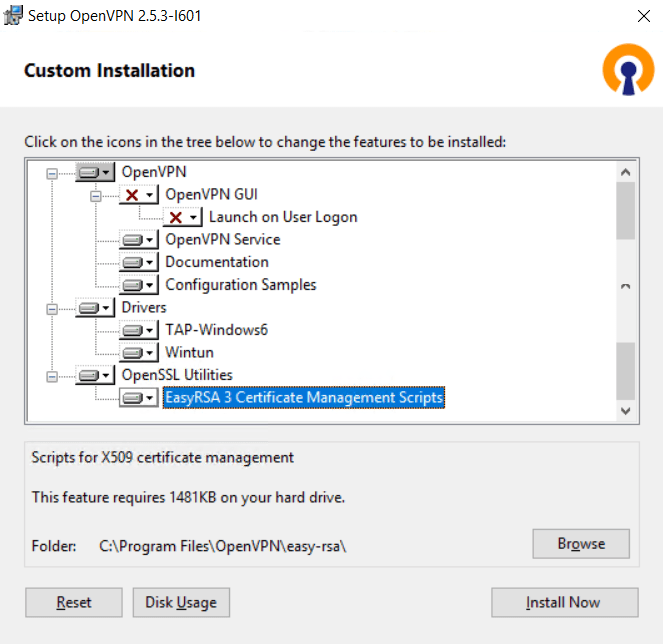

I need to ask you a few questions before starting the setup. You will also be prompted to enter some information. It will show the IP address of the server or we will have to define it.
#SERVER OPENVPN INSTALL#
If you don’t have the curlpackage installed, you can do it sudo apt install curlĪssign execute permissions to the script and then run it chmod +x openvpn-install.sh
#SERVER OPENVPN DOWNLOAD#
So, download the script by running curl -O Choice to use a self-hosted resolver with Unbound (supports already existing Unbound installations)Īnd a few other things.Variety of DNS resolvers to be pushed to the clients.OpenVPN 2.4 features, mainly encryption improvements.Customisable encryption settings, enhanced default settings.If needed, the script can cleanly remove OpenVPN, including configuration and iptables rules.Iptables rules and forwarding managed in a seamless way.Installs and configures a ready-to-use OpenVPN server.Thanks to the fantastic work done by the community we have a fully working and easy-to-use installation script. While setting up a VPN is never an easy task, it’s actually not that complex thanks to OpenVPN’s architecture and community tools. On the other hand, it is also used as a vital tool in telecommunications or academic situations. One thing I haven’t mentioned is that OpenVPN is completely open-source which allows us to audit its security and know-how reliable it is.Ī common use of OpenVPN allows access to a company’s resources regardless of the location of the device. The service combines security with ease of use sheds OpenVPN’s lightweight design of many of the complexities that characterize other VPN implementations.

OpenVPN has established itself as a de-facto standard in the open-source network space, with more than 3 million downloads since its creation. That is, it allows you to link two nodes that are connected over the Internet but not in the same place, as if it were a LAN. In a nutshell, OpenVPN is a service used to create Virtual Private Networks.


 0 kommentar(er)
0 kommentar(er)
